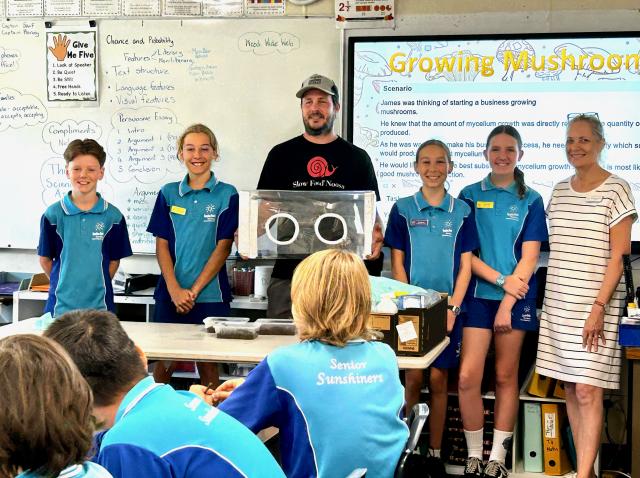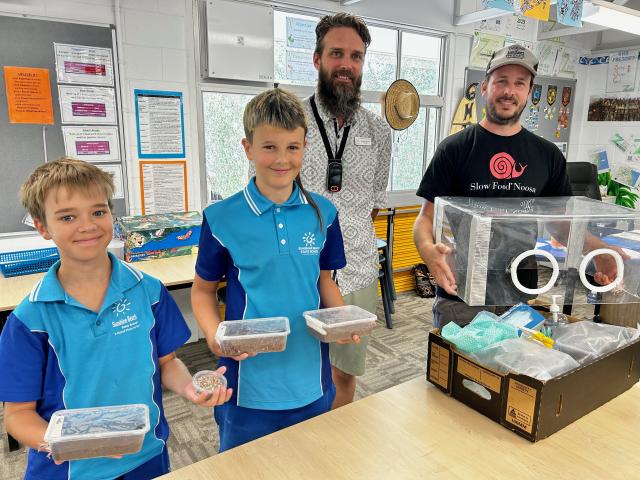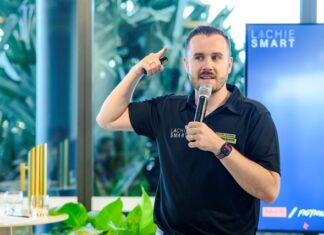Sunshine Beach State School teachers Amanda Brown and Hamish Black have included growing mushrooms and learning the benefits of fungi and mycelium as part of the Year 6 science curriculum, Life on Earth.
What started, with growing mould on bread as their initial Year 6 curriculum, growing mushrooms has now become a fascinating addition to the science classes.
It gets students to understand what’s going on, it enriches them and makes it real-life learning.
Just like the student’s watching mushrooms grow, the teachers get excited about seeing the children understand the process.
“Yes, we were growing mould on bread, but it wasn’t extending them,’’ Hamish said.
“They see mouldy bread all the time … this is about the depth of connection.’’
The teachers had been dealing with mushroom grower and Slow Food Noosa Snail, Scott Andrews of Tagigan Road Produce, over previous years and it just seemed to fit nicely.
They paid tribute to what fellow teacher, Slow Food Noosa member and instigator of the Slow Food Snail Kids, Di Seels.
Di is making students aware of food, the environment and connecting the students as to where their food comes from.
“Di is taking what’s all around us and putting it into the lives of the children,’’ Hamish said.
“We are witnessing what’s going on in nature and this program enriches it even further.
“We enjoy the reality that term 4 brings to Year 6 … it’s a matter of taking stock of where they are and the world they live in, with students finding the practical demonstrations of growing mushrooms and the role fungi plays in the environment to be very helpful.”
A Year 6 student explained it: “Learning about what mushrooms and other lifeforms do … it’s fascinating.
“We learnt how some mushrooms can take over other life forms and that fungi is its own kingdom … it’s not a plant.”
“What is fascinating is that the mycelium can act as a conduit between plants and trees and can transfer nutrition between them.
For Di Seels, having Scott in the classroom or outdoors, engaging the students has been having a huge relevance to the teaching program.
“Watching mould growing on white bread, it’s not teaching the bigger picture of the huge relevance that fungi have in local food production and in our environment.
“The students are making the connection of the role mycelium plays.
“We need the environment, it’s not the other way around.
“To have someone such as Scott provide his expertise, and come into the classroom, is a valuable tool and provides a fresh injection and has the future impact captivation factor that inspires.’’









